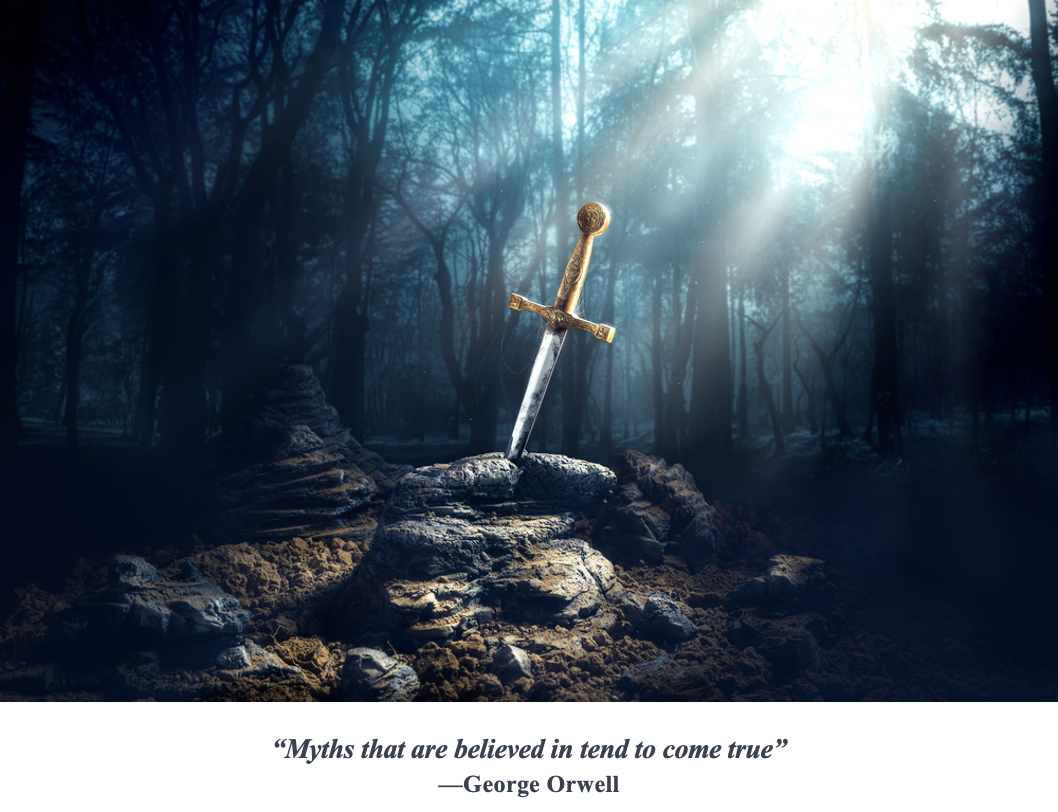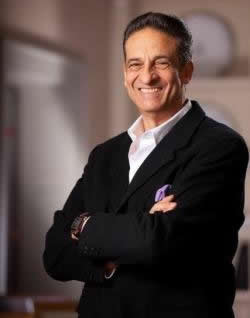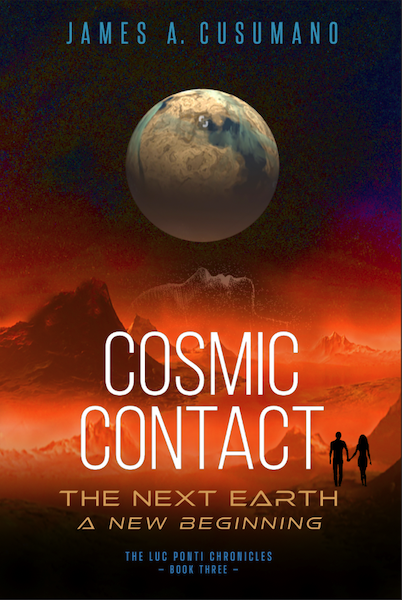Philosophy vs. Religion—A Contemplation of Consciousness
Jun 19, 2024 by James A. Cusumano

Philosophy delves into the core essence of knowledge, reality, and existence, while religion entails faith in and reverence for the transcendent abilities and assistance of a deity or deities. It's important to note a key distinction between philosophy and religion: philosophy often comprises literate conjectures aimed at stimulating contemplation and aiding in the exploration and comprehension of optimal paths for both physical and conscious evolution, not only for individuals but also for the broader cosmos.
In this context, the Consciousness Conjectures stand as a philosophy, distinct from organized religion. Their primary aim is to delve into the fundamental essence of consciousness, reality, knowledge, wisdom, and existence, empowering individuals to unearth enlightening insights within themselves and thereby lead a more fulfilling life—here and hereafter. Unlike religions, which revolve around deities and dogma, this philosophy revolves around the earnest belief that transcendent Divinity resides within each individual and can be accessed during elevated consciousness, most especially, meditation.
Religious traditions often involve complex systems of rules, doctrines, and dogma that delineate dualities such as heaven and hell, as well as moral dichotomies like good and evil, each with its associated consequences. These regulations and doctrines have been primarily formulated by human individuals rather than spiritual luminaries or Avatars such as Laozi, Confucius, Buddha, Zoroaster, Rumi, Mohammed, Abraham, Jesus, and others, whom adherents recognize as the founders of their respective faiths.
Furthermore, some philosophers have conjectured that these Avatars did not necessarily aim to establish global organized religions. Instead, their primary intent was to provide a philosophy for leading an enriched and fulfilling life—a philosophy that could be understood by all people and elevate a person’s consciousness and, consequently, contribute to the greater consciousness of our world and, in fact, of the universe.
These philosophical discussions frequently revolve around the significance, or lack thereof, in certain religious concepts, like sin, hell, indulgences, and eternal consequences, in fostering socially acceptable moral conduct and, importantly, in elevating universal consciousness. Perceived as significant detractors to the religious path, critics highlight instances of conflict, persecution, cultural decline, and loss of life, such as the Crusades, the 30-years war in Europe, and the Spanish Inquisition.
However—throughout the ages—religions undeniably have provided a level of solace, optimism, and hope to their numerous adherents amidst worldly chaos, turmoil, and adversity. Therefore, it’s useful to consider the source of one of the major benefits of organized religion—the power of myth.
Religion And The Power of Myth
The benefits of organized religion to the individual, even when one considers many of its dogmas and tenets to be a blend of history and mythology, are most assuredly, something Joseph Campbell called The Power of Myth.
Cambell’s concept of The Power of Myth refers to the profound and transformative impact that myths can have on human consciousness and society. A renowned mythologist and scholar, Campbell explored the role of myths across different cultures and historical periods. He argued that myths serve several critical functions to humanity:
- Explanation of the Universe: Myths provide a framework for understanding the natural world and the cosmos, offering possible explanations for the mysteries of existence, creation, and the forces of nature.
- Guidance for Personal Growth: Myths often contain archetypal stories and characters that represent universal human experiences and challenges. These stories can guide individuals through life's stages, offering insights into personal development, transformation, and self-discovery.
- Cultural Cohesion and Identity: Myths can reinforce cultural values, beliefs, and traditions, helping to unify communities by providing shared narratives and symbols that foster a sense of belonging and identity. These principles tend to provide long-term stability to social structures.
- Moral and Ethical Lessons: Myths often encapsulate moral and ethical principles, conveying lessons about right and wrong, virtue and vice, and the consequences of human actions.
- Spiritual Experience: Myths can serve as a conduit for spiritual experiences and a sense of connection to the Divine or the Transcendent. They can evoke a sense of wonder, awe, and reverence for the mysteries of existence.
In his works, such as The Hero with a Thousand Faces[1] and The Power of Myth series (a series of interviews with Bill Moyers)[2], Campbell explored these themes, illustrating how mythological themes recur across cultures and epochs, resonating with the human psyche. He emphasized the idea of the "monomyth" or "hero's journey," a common narrative structure found in many myths worldwide, which follows a hero's adventure, crisis, and return, symbolizing personal and collective transformation.
Campbell believed that modern society often loses touch with the power of myth, leading to a sense of disconnection, discouragement, and meaninglessness. By reconnecting with these ancient stories and their symbolic meanings, he maintained that individuals could find greater depth, purpose, and understanding in their lives.
In one way of thinking, these myths serve as a form of consciousness with a function that threads its way throughout Universal Consciousness and hence can have a significant impact.
Therefore, the value of myth within organized religion must be acknowledged and perhaps, even embraced. Nevertheless, it’s important to recognize the other side of this “mythological coin”—a clear and non-negotiable commitment by religion to duality—“I am here and the Divine is up there.” “I am here and you are there.” “This is me or mine, and that is you or yours.” This aspect of duality dismisses the profound value of interconnectivity throughout the consciousness spectrum within the universe.
Accordingly, the recognition of the power of myth should be pursued with clarity, care, and most importantly, balance, since throughout all of history duality has been the prime force behind much of the turbulence, misgivings, and conflict throughout the world.
Looking back more than 6,000 years, all of the great innovative and successful civilizations, including the Mesopotamians, Persians, Egyptians, Greeks, and Romans, eventually met their end because of the prevalent presence of duality-thinking throughout their respective empires. Absent significant change in its current course, our civilization is primed to repeat history.
Nonduality—The core Tenet of The Consciousness Conjectures
Antithetical to the essence of organized religion, the core tenet of the Consciousness Conjectures—Non-duality—maintains that the true root reality of hope and spiritual power lies within each individual and not exclusively and externally “somewhere out there.” Universal Philosophy is grounded in the concept of nonlocal connections of consciousness. In theological terms, it maintains that the divine essence of Cosmic Consciousness[1], which exists external to all living and nonliving things, also exists within them. This is due to the infinite nonlocal presence of consciousness throughout the universe—i.e., Nonduality.[2]
Access to this divine essence and its spiritual power is attainable by anyone who quiets the fear, noise, desire, and chaos of their physical world. With commitment and practice, this can lead their mindful presence to a gap between thoughts, which is an entrée to the Source of infinite knowledge, wisdom, creativity, love and compassion, i.e., Cosmic Consciousness. The longer the absence of thought, the wider the gap and the greater the access to these powerful attributes.
Meditation, which can be compared to prayer, is an effective path to achieving this. It is likely that many of the revered spiritual figures and Avatars, often associated with superhuman and paranormal abilities, harnessed such practices to achieve their extraordinary feats.
[1] Sometimes referred to as the Akashic Field, the Unified Field, or God.
[2] There is a term used in quantum information theory—unitality—that I prefer. Rather than the antithetical connotation of ‘nonduality,’ it has a more pragmatic and positive nuance. However, nonduality seems to be the preferred term of modern philosophers, so we’ll stick with that.
Epilogue: Navigating the Cosmic Inquiries
In an ever-changing and challenging world, grappling with questions about AI, consciousness, and our place in the cosmos is natural for inquisitive human-sentient beings. The Consciousness Conjectures offer the basis for a philosophy that encourages and assists in this personal exploration and contemplation.
This essay on the Consciousness Conjectures ventures into the realms of science, spirituality, and philosophy, bridging the gaps between them. It calls for introspection and reflection, inviting the reader to consider the profound potential and mysteries of consciousness in a universe that continues to unfold its infinite secrets.
The Consciousness Conjectures spawn a Universal Philosophy which unveils a journey that transcends the boundaries of religion, science, and philosophy, offering a lens through which we can observe and ponder the profound questions that shape our existence and move us increasingly towards greater understanding, fulfillment, and enlightenment.
A parting thought—If but a single idea catches your focused attention, I hope it’s our unfortunate tendency to surrender to Duality, and the importance of realizing and accepting your eternal connection to Cosmic Consciousness as the natural path to fulfillment and enlightenment, and hence, your acceptance and commitment to Nonduality. Beyond genetics, we are programed from birth, both consciously and unconsciously, often with the best of intentions by others and many earthly institutions, most ostensibly, religion, impressing upon us that the means to a joyous and fulfilling life lies “out there” and not within. This is one of humanities biggest and perilous misconceptions.
As the essence of the Universal Philosophy clearly states—Nondualism is the key to joy, fulfillment, and eventually, enlightenment. All of the necessary resources and power are already within you. You simply have to quiet the noise of fear, desire, and chaos in your world and awaken to your true reality—Personal Consciousness. You can do this by lowering the virtual wall in your mind and embarking on a journey of stillness, solitude, and silence into the gap by means of meditation to altered states of consciousness.
Recall the words of Jesus Christ, one of the great Avatars of human history, who while speaking to a multitude was asked, “How is it that you can perform miracles?” His humble response was, “All that I do, you can do, and more.”[3]
[1]Joseph Campbell, The Hero with a Thousand Faces (The Collected Works of Joseph Campbell), New World Library, Third Edition, Novato, California, July 28, 2008.
[2] Joseph Campbell, The Power of Myth, Doubleday, 1988.
[3]English Standard Version of the Bible, John 14:12.

